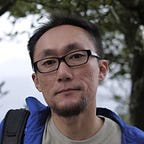To Community Artist: You Know More Than You Realize
On ‘The Community Musician’s Doing-Knowing’ by Dr. Jo Gibson
This is the second piece inspired from zoom conference I participated in on community music. See the first one here: A Simpler Wording Than ‘Positionality’ for Community Arts Facilitators.
Last week I mentioned that my research interest is not specific to any single artform. Instead, I like to see if a certain theory for a specific form can be applied to others. (This piece’s original title was ‘A Concept for Multiple Artforms in the Community Arts’.)
Attending zoom conferences designed for a European-North American timezone in Hong Kong is quite exhausting, but the topics really caught my attention. One of which was
If it was in written format, I would have given up at 11pm that night. But the video was well-made, and the substance was even better.
‘The Community Musician’s Doing-Knowing’ by Dr. Jo Gibson
What I got from the video was this:
- Community musicians know (sense, in the fullest way) what happens during an engagement through doing. It is not really a loop of doing-knowing-doing-knowing-doing….but instead, it happens together.
- Because the known is so intertwined with what is done through gestures, body language, wilful assessment, spoken instructions, art-doing and etc., community artists always know more than they have time or have the conscious awareness to put into words.
This reminds me of John Dewey’s description from around page 44 to 46 in Art as Experience, where the artist’s state of full awareness puts them in a constant state of doing and undergoing, not in alteration, but in relationship. Another example (I forgot if he wrote it, or I read it somewhere, or I thought of it) is a jazz quartet improvising to a blues cycle. The drums, piano, bass and saxophone, with minimal verbal exchanges, sense each other as the song progresses, weaving beautifully together intricate music (think Charlie Parker)
Tacit Knowing: Community artists know more than they realize
As mentioned in the previous article, I was attending the zoom conference with ‘how can we train community artists better’ in mind. Point 2 above explained briefly that community artists operate at multiple sensory and expressive layers; and often these process operate much faster than conscious thoughts. Hence, they know more than they are aware.
This is of course not new, and certainly not limited to community artists, but certain professions demands it. For example, the arts, cooking and sports all operate primarily outside of verbal and intellectual domains. The idea of tacit knowing or doing-knowing also applies to them.
But somehow, in my experience, artists are often asked to explain their work, whereas we rarely ask chefs and sportspeople to explain how they do what they do.
Trust your artists
Dr. Jo Gibson has put something into words that I have been trying to explain to stakeholders for years. Very often when community artists are invited to work in schools or community centre, the partnering teachers or social workers would question their decisions during an activity, or simply impose something without spending time with the group.
A long time ago, I learnt to do-know as a facilitator assistant, sometimes involved and sometimes observing facilitators work. During that time, I learnt to recognize when artists are ‘in the zone’ (or Csikzentmihalyi’s optimal experience), their presence totally immersed in facilitation, with mind and senses opened and intertwined.
It is not a rare occurrence. Any prepared facilitator working in a reasonable environment can get into it, and my job as an arts manager/coordinator was to provide the support in maintaining such a work environment. In turns, my artists uphold their professionalism by throwing themselves wholeheartedly in the engagement.
It was a pleasure to trust my artists at work. But perhaps more satisfying, was to see young facilitators increasingly realize that they could depend on their guts, or intuition, or doing-knowing.
